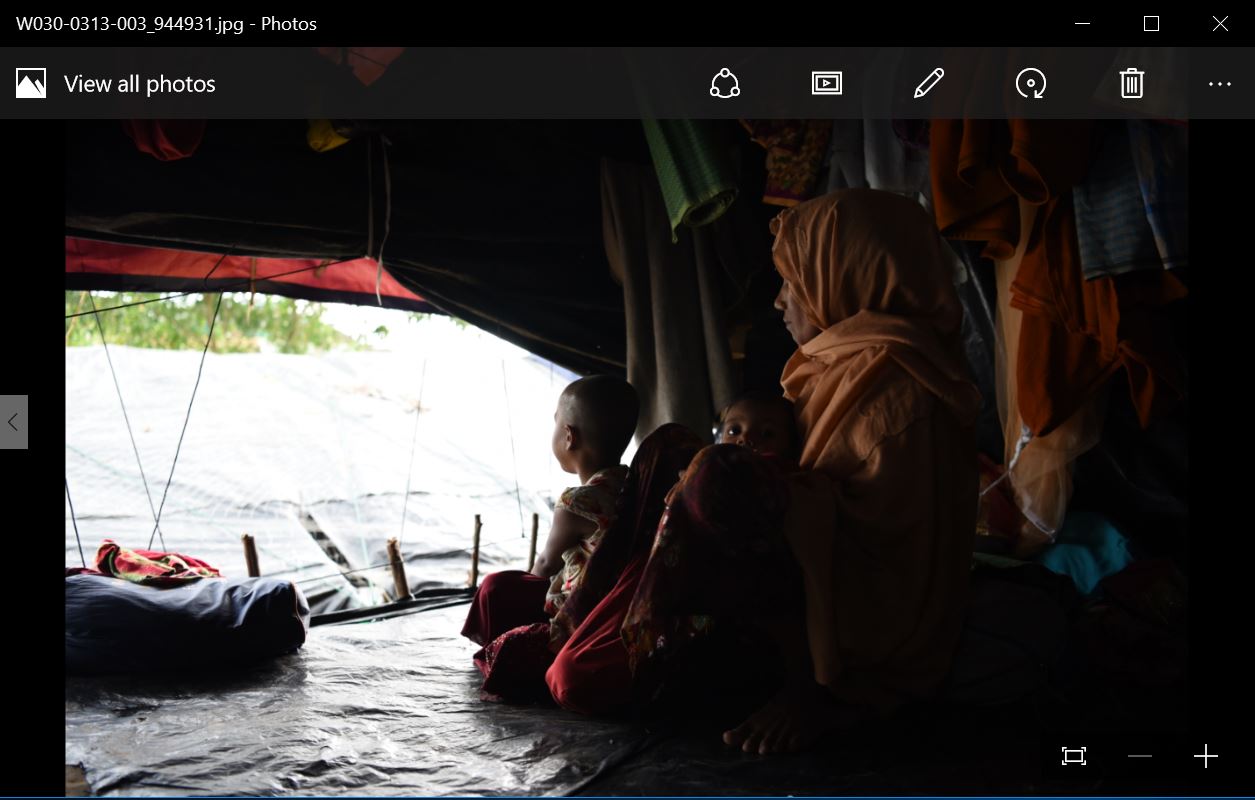World Vision Cautiously Welcomes Rohingya Pact
Friday, November 24, 2017

World Vision cautiously welcomes an initial agreement for the possible repatriation of hundreds of thousands of Rohingya refugees from Rakhine State.
World Vision Bangladesh national director Fred Witteveen said details were not yet clear, but any repatriation agreement must respect the rights of refugees to return in a safe, voluntary and dignified manner in line with international, humanitarian standards.
He said World Vision was particularly concerned that children be kept safe. “For the children who return, as well as those who remain in Bangladesh, it is a moral and legal duty for all parties to protect them from violence,” he said.
The agreement took place after a meeting in Myanmar’s capital, Naypyidaw, between Myanmar’s de facto leader, Aung San Suu Kyi, and the Bangladeshi foreign minister, Abul Hassan Mahmood Ali, who described it as a “primary step”.
A joint working group will be set up within three weeks and an arrangement for repatriation “will be concluded in a speedy manner”, the Bangladeshi foreign affairs ministry said in a statement. The return of the refugees should start within two months, it added.
Issues still to be clarified include where the refugees will be resettled since hundreds of villages have reportedly been razed, and how their safety will be ensured.
More than 600,000 refugees have crossed into Bangladesh since violence broke out in Rakhine State on August 25, creating the world’s largest refugee camp in Cox’s Bazar.
Mr Witteveen warned that the needs of refugees could worsen if the return is not safe, orderly and voluntary. “Even if those conditions are met, the malnourished need treatment, and those who were raped, sexually abused and beaten will need medical care and psychological first aid. Orphaned children need guardians,” he said.
He said any repatriation should also take into account the likelihood that documents had been lost. “When people have fled extreme brutality, targeted killings and rape, it’s unrealistic to expect they’ve salvaged any shred of documentation,” he said.
Mr Witteveen said that during emergency food distribution to 135,000 people, World Vision had documented the refugees’ intense longing to return home and fervent hopes for peace.
International NGOs have not been able to access the conflict-affected areas, but “with partners we stand ready to provide assistance impartially to all people”, Mr Witteveen said. “These people have suffered terribly. The international community, the Bangladesh and Myanmar Governments must work together towards a durable solution to the crisis.”
Mr Witteveen said he agreement must ensure that children’s needs are met, in line with the UN Convention on the Rights of the Child, International Refugee Law, and the Minimum Standards for Child Protection in Humanitarian Action. This includes:
- adequate nutrition, shelter, water, sanitation, psychosocial support and education
- protection from violence including trafficking, physical and sexual abuse
- a comprehensive protection mechanism for unaccompanied and separated children.
- protection systems that won’t deter unaccompanied children from identifying themselves as they arrive in Bangladesh and seek to inform children of their rights, using age appropriate language, in a child-friendly manner.
- Provide psychosocial care, such as psychosocial first aid, safe areas to play and interact and group work for children who have been exposed to traumatic events
- Ensure that children who have been displaced are given the opportunity to learn in their temporary location and have access to appropriate forms of education.
For media interviews contact Leah Swann on 0421 857 591
Picture: Refugee mother and children, Cox's Bazar, Bangladesh.
Media Releases,
Bangladesh,
Myanmar,
Refugee Crisis
Back to all Results